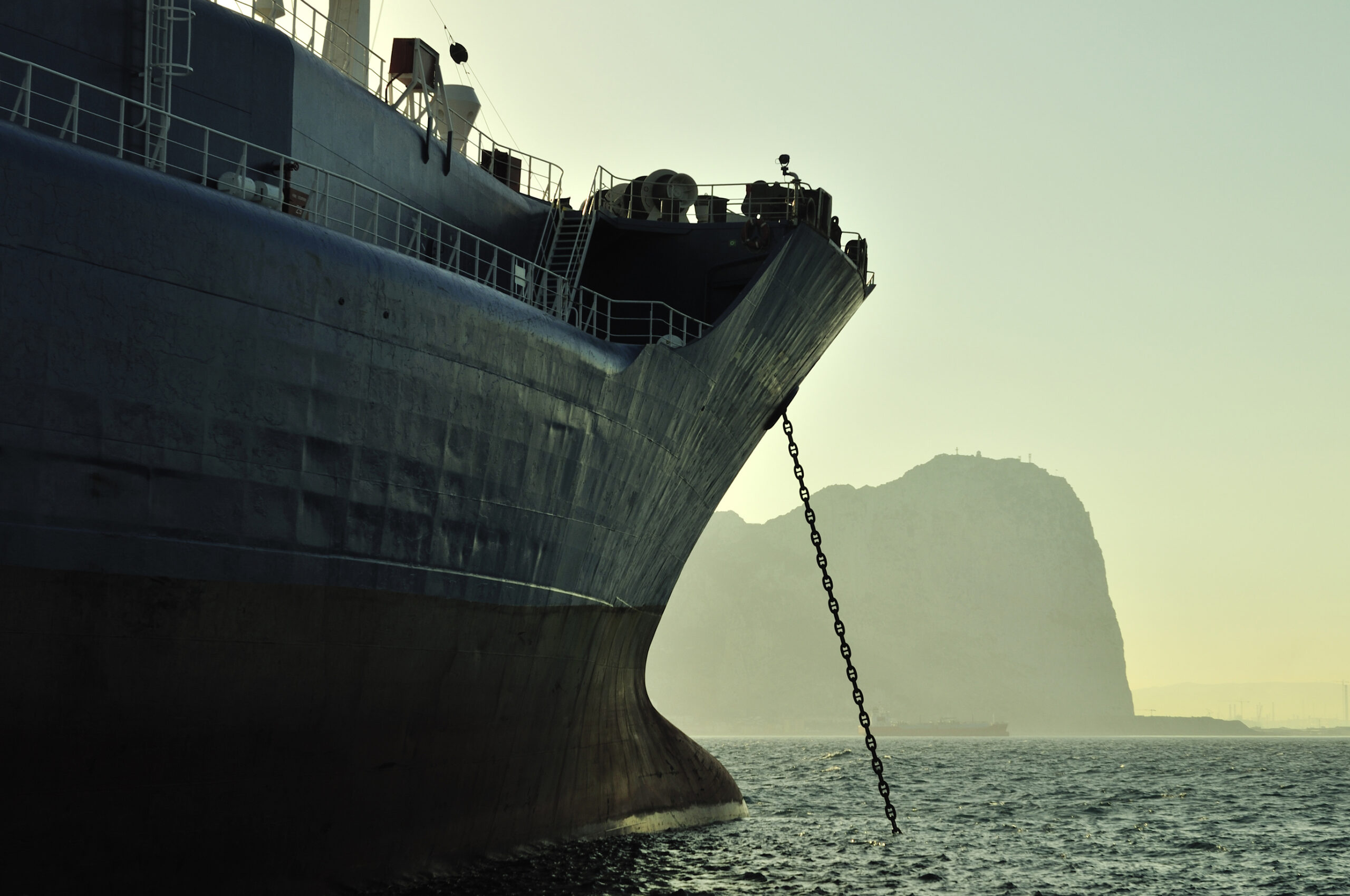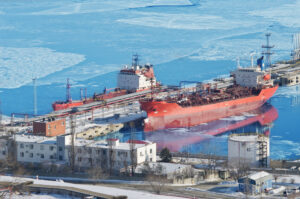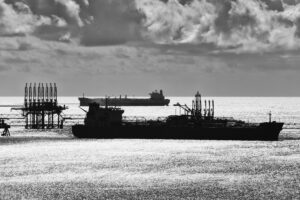EU coastal maritime enforcement authorities, the UK Maritime and Coastguard Agency and the Royal Navy must detain ‘shadow’ fleet vessels operating under false flags, according to a new report.
In its report published on Thursday, the Centre for Research on Energy and Clean Air (CREA) said coastal states must act boldly and detain ʻshadowʼ fleet vessels that pose huge environmental and security threats to European and UK coastline.
Port authorities, especially in the EU, also need to be given an expanded role in detainment of vessels flying false flags and in imposing strict fines on their operators and insurers.
The CREA urges the EU to create a “unified database of legitimate flag registries” which will be shared between the port authorities.
Recent developments have shown the dangers posed by vessels flying false flags and the inherent risk to maritime regulatory oversight.
The IMO defines a vessel as flying a false flag if it is confirmed by the authorized flag administration as not legally registered under the flag in question.
“False flag is used to designate any ship which transmits, broadcasts, displays, or otherwise engages in the misuse of flag details, was confirmed by the Authorized flag Administration falsely associated with the ship in question,” the IMO says.
In the first three quarters of 2025, a total of 113 Russian ʻshadowʼ vessels have flown a false flag during their operations, in accordance with CREA. In volume terms, 13% (11 million tonnes, valued at EUR 4.7 bn) of Russian oil transported by ʻshadowʼ vessels between January and September 2025 has been on vessels flying a false flag.
CREA analysis found that there have been 90 vessels which have operated under false flags in September 2025 – a six-fold increase from December 2024. Fifty-two of these vessels have traded at least once in the third quarter of 2025.
The false flags of twenty countries have been used by ʻshadowʼ vessels. This includes countries which either do not offer flagging services, or have actively denied flagging ʻshadowʼ vessels and have deregistered them post sanctions.
Six flag registries that had not flagged a Russian oil vessel prior to Russiaʼs full-scale invasion of Ukraine had at least 10 such vessels in their fleet in September 2025. These six registries currently flag a total of 162 ʻshadowʼ vessels.
Of the 46 registries to have flagged ʻshadowʼ vessels since the full-scale invasion of Ukraine, 23 are classified as ʻflags of convenienceʼ by the International Transport Workers Federation. These 23 registries have flagged vessels that have transported EUR 50 bn worth of Russian oil since the full-scale invasion of Ukraine, accounting for nearly one-fifth of all Russian oil and oil products transported by the ʻshadowʼ fleet.
A total of 134 vessels sanctioned by the EU, OFAC or the UK till the end of September 2025 have shifted their flag registry once within three months of them being put on sanctions designation lists, showcasing a new market of operators willing to take the risk of providing flag services to these vessels in absence of traditional registries.
A total of 85 vessels have registered at least two flag changes six months after being sanctioned by the EU, OFAC or UK.
CREA analysis found that in September 2025 alone, 18 ʻshadowʼ vessels employing false flags transported EUR 830 mn of Russian oil globally. Thirteen percent (EUR 4.7 bn) of Russian oil transported by ʻshadowʼ vessels in the first three quarters of 2025 was on vessels flying a false flag.
Sanctioned vessels continue operations by hopping flags to new registries
The vast majority of Russiaʼs ʻshadowʼ fleet is now sanctioned by the EU, OFAC and the UK. These sanctions have however not entirely cut off the operations of these vessels. In the first three quarters of 2025, sanctioned vessels carried 44% of Russiaʼs crude exports.
Unsanctioned ʻshadowʼ vessels accounted for 26%, and G7+ owned/insured vessels carried the remaining 30%.
According to CREA analysis, approximately 30% of Russian crude oil carried by sanctioned vessels in the first three quarters of this year, was via its Baltic ports, therefore transiting the Danish Straits and subsequently the Dover Straits — two key checkpoints under the EU and UKʼs aegis and control. A further 18% exited via Russiaʼs Arctic ports and also moved through the Danish Straits.
CREA proposes the following specific policy recommendations:
A unified EU database of legitimate flag registries shared between port authorities: Vessels passing through EU strategic choke points and straits must show flag certification, which must subsequently be verified by a unified database shared between registries, port states and maritime service providers.
Require flag certification for vessels transiting EU waters: While the EUʼs current Vessel Monitoring Directive (2022/59/EC) requires vessels passing EU waters to show proof of insurance, this should be expanded to include proof of flag certification.
Expand engagement with and within open registries to tighten net for ‘shadow’ fleet.
Reform existing flag registration norms.
EU coastal maritime enforcement authorities, the UK Maritime and Coastguard Agency and the Royal Navy must detain ‘shadow’ fleet vessels operating under false flags.
EU hits Russian LNG, “shadow” fleet vessels: What Moscow Says
EU countries adopted in October a 19th package of sanctions against Russia for its Ukraine war, including a ban on Russian LNG imports, starting January 2027 for long-term contracts, and within six months for short-term contracts, whilst an additional 117 vessels have been made subject to a port access ban and a ban on the provision of a broad range of services related to maritime transport, bringing the total number of designated vessels to 557.
In response, the Russian foreign ministry spokeswoman Maria Zakharova stated: “The envisaged measures include a ban on supplies of Russian LNG to the EU market through 2026; sanctions on certain companies in the petroleum production and oil transport sectors (including Rosneft and Gazpromneft); additional restrictions on vessels that Brussels classifies as belonging to the so-called Russian shadow fleet; measures against some Russian and foreign banks; financial restrictions; and a ban on the export of certain additional categories of goods.
“The EU clearly fails to realise that such ambitions to act as a global policeman (or, if you prefer, a global customs officer) will inevitably have consequences for the EU’s place and role in the world.
“Brussels seems to be oblivious to the fact that, in fighting the circumvention of anti-Russia sanctions, it is increasingly isolating itself on the international stage.
“Russia resolutely condemns any illegitimate unilateral coercive measures. An increasing number of countries share and support this approach.”
The Russian MFA also wrote in a post on X: “In response to these unfriendly actions, the Russian side has substantially expanded the list of representatives of EU institutions, member states of the EU, and a number of European countries aligning themselves with Brussels’ anti-Russian policy, who are prohibited from entering the territory of the Russian Federation.
“The hostile actions of the EU are incapable of influencing the policy of our country.”



